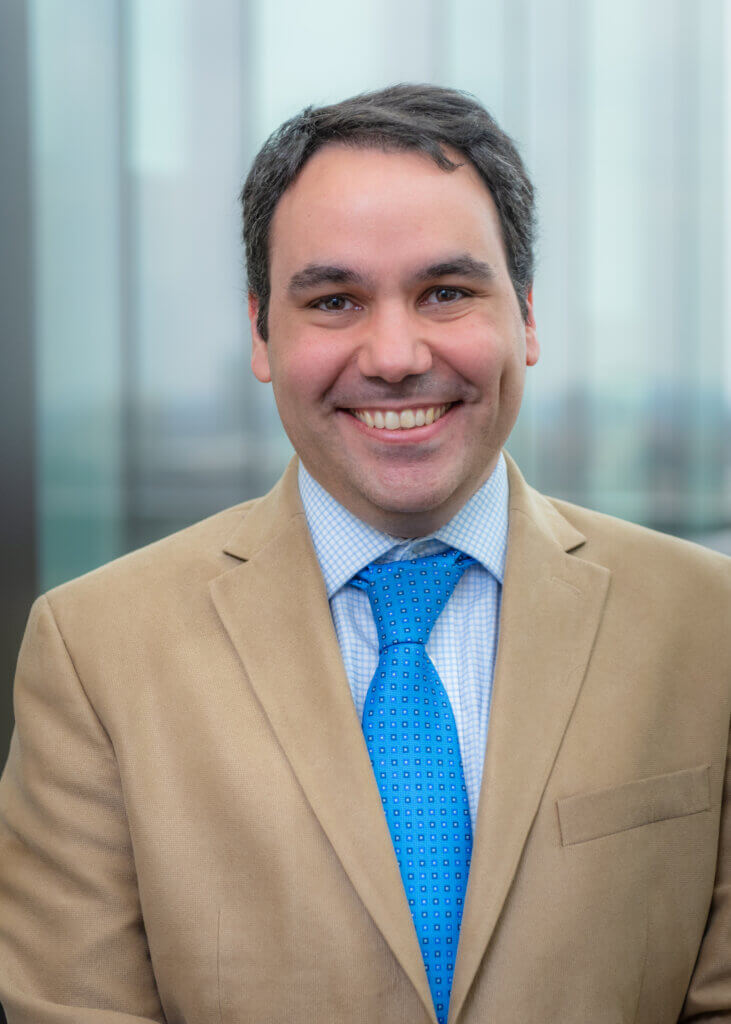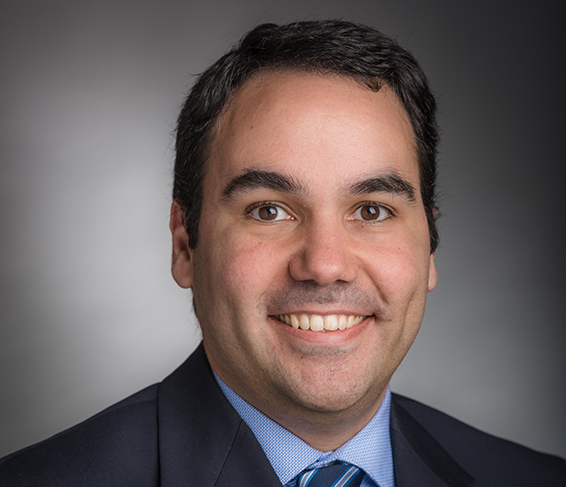Over the past 30 years, outcomes have improved dramatically for women with breast cancer. There are many new treatments, including hormone therapies and CDK4/6 inhibitors.
In contrast, there has been no improvement in the outcomes for men with breast cancer. And current guidelines don’t support the use of newer therapies in men.
“If we do the same thing over and over, we can only expect to get the same results, which is what we have been doing with men with breast cancer for the past three decades or longer,” says Jose Pablo Leone, MD, a clinical investigator in Dana-Farber’s Breast Oncology Program and director of the Program for Breast Cancer in Men.

Male breast cancer accounts for just 1% of all cases of breast cancer. Advancing care for a rare group requires a focused effort, so Leone has invested energy into designing and leading a clinical trial for men with breast cancer. The trial, called ETHAN, is open at sites across the United States.
Randomized controlled trials are the gold standard for answering clinical questions. They are how doctors know which treatment is right for their patients. Such trials are a key part of Dana-Farber’s effort to provide the best possible care for all types of cancer, including rare cancers.
“We try to be expert in every disease that we are treating, and we try to generate the data that helps guide cancer doctors around the world so they can treat these cancers as well,” says Dana-Farber’s Erica L. Mayer, MD, MPH, Director of Breast Cancer Clinical Research. “The ETHAN trial is an important national effort to study this less common version of breast cancer.”
Understanding a rare cancer
The current treatment for most men with breast cancer is surgery followed by tamoxifen, a reliable but older drug that blocks estrogen receptors. That is, it makes it harder for cancer cells to thrive because it deprives them of access to estrogen.
Over 95% of male breast cancers rely on estrogen to grow.
“This can sound strange to men at the time of diagnosis,” says Leone. “But all humans produce estrogen.”
Estrogen is produced as part of a cascade of hormones in the body that starts with androgens. Some androgens will be converted into estrogens. The rate at which that conversion happens dictates how much estrogen a person has.
Other hormone therapies also deprive cancer cells of estrogen, but they do so in different ways. For instance, aromatase inhibitors block an enzyme that helps convert androgens into estrogen.
Investigators have speculated that aromatase inhibitors may not be effective against breast cancer for men because the sheer volume of androgen might overwhelm the blockade. As a result, even though they are approved, aromatase inhibitors are not recommended over tamoxifen in treatment guidelines for men. A few case studies, however, suggest the treatment could work.
“We need a clinical trial that puts the hypothesis to the test,” says Leone.
Designing a trial
The ETHAN trial aims to include 60 men with newly diagnosed breast cancer. The goal is to test a range of interventions prior to surgery to generate evidence that could help update treatment guidelines for men.
“This trial will help us answer key questions about whether or not drugs such as aromatase inhibitors and CDK4/6 inhibitors are effective in men,” says Leone. “The results will help us determine if clinical practice should change.”
In its first phase, the trial aims to determine if aromatase inhibitors are effective in men. The trial will randomize patients into three groups. The control group will receive standard of care treatment with tamoxifen, another an aromatase inhibitor, and another an aromatase inhibitor plus a gonadal suppression drug that dampens the production of androgens. No patients on the trial will receive a placebo.
After three weeks of treatment, Leone will measure a marker of cancer growth called Ki-67. Ki-67 drops when cancer growth slows. The marker is known to drop by about 50% with tamoxifen in both men and women and by about 80% in women with aromatase inhibitors plus androgen suppression drugs.
“This biomarker will help us see if the drugs are doing what they are supposed to be doing,” says Leone.

The trial participants will then be randomized into four groups testing hormone therapies alone or in combination with a CDK4/6 inhibitor, a medicine that works by interrupting cancer cell division. After 12 weeks of treatment, participants proceed to surgery to remove the cancer. Tumor samples will help Leone and colleagues determine how much the cancer shrunk with treatment, and which combination made the most difference.
“We’re hoping that this focused trial will help us catch up and offer men treatment options that are more effective,” says Leone, adding that a similar focused effort might be required for trans, nonbinary, or gender-nonconforming individuals who may have unique considerations when it comes to hormone therapies.
A passion for improving patient care
Trials like the ETHAN trial help shape effective cancer treatment guidelines. They are typically initiated by individual investigators who are determined to improve patient care.
“Our investigators are inspired by the challenges they see in clinical practice and have a passion to learn more,” says Mayer. “They’re committed to finding answers that help our patients.”
Through his efforts to design a thoughtful trial and gain support in the research community, Leone has been awarded grant support for the trial through the Breast Cancer Research Foundation (BCRF), Eli Lilly and Company, and Conquer Cancer®, the ASCO Foundation. The Dana-Farber Breast Oncology Group has also committed resources and support to help make the trial a success.
The trial will be offered at several cancer care centers across the country with a diverse population of patients. “This not only extends the reach of these interventions but also makes our trial results more generalizable to the broader patient population,” says Mayer.
Learn more about breast cancer in men from Dana-Farber Cancer Institute.
About the Medical Reviewer

Dr. Leone received his MD from Universidad del Salvador, Argentina in 2005. He completed his residency in Internal Medicine at University of Miami Jackson Memorial Hospital in 2011, and went on to complete fellowships in Hematology and Medical Oncology at University of Pittsburgh Medical Center in 2014. He was faculty at University of Iowa Hospitals and Clinics from 2014 through 2017. In 2017, he joined the staff of Brigham and Women's Hospital and Dana-Farber, where he is a medical oncologist and clinical investigator in the Breast Oncology Center. His research focuses on brain metastases, male breast cancer and novel therapies in the treatment of breast cancer.

Good article, I am a 65 y/o with stage 4 Male Breast Cancer, that I have had flr 6 years. Good Luck with your study.